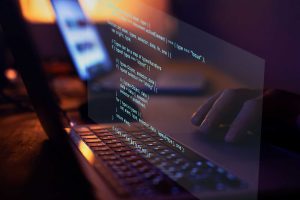In the depths of the internet, beyond the reaches of search engines and conventional websites, lies a shadowy realm known as the Dark Web. A hotbed of illicit activities, the Dark Web has long been associated with illegal transactions, hacking forums and black markets. However, amidst this digital underworld, a different kind of activity thrives – the covert dissemination of political agendas. The Dark Web serves as a clandestine meeting place for individuals and groups with political motivations that operate outside the bounds of traditional politics. Here, anonymity reigns supreme, allowing dissidents, activists and extremist factions to communicate and collaborate without fear of detection or censorship. Their objectives range from promoting radical ideologies to subverting established power structures. Within this hidden realm, a diverse range of political undercurrents intertwine. Extremist groups from various ideological backgrounds exploit the anonymity of the Dark Web to recruit followers, exchange tactics and plan attacks. From right-wing extremists promoting hate speech and white supremacy to left-wing radicals advocating for revolution, the Dark Web offers a platform for their toxic ideologies to flourish.

Beyond the violent fringes, the uncensored hidden wiki Dark Web also hosts dissidents from repressive regimes seeking to expose corruption and injustice. Whistleblowers, journalists and activists utilize the anonymity provided by the Dark Web to share classified information, leak government documents and raise awareness about human rights violations. These courageous individuals risk their lives to shed light on the dark secrets hidden behind closed doors. Moreover, the Dark Web has become a breeding ground for cyber-warfare and state-sponsored hacking. Nation-states engage in covert operations, launching cyberattacks against rival governments, corporations and institutions. The Dark Web provides a haven for these actors to recruit skilled hackers, purchase hacking tools and exchange knowledge to further their political agendas on a global scale.
The political undercurrents of the Dark Web are not limited to extremist ideologies and state-sponsored operations. Non-state actors, such as hacktivist collectives, leverage this digital underworld to protest against perceived injustices, challenge censorship and expose corporate malfeasance. From Operation Payback to Anonymous, these groups harness their technical prowess to disrupt, expose and influence the status quo. The Dark Web’s political undercurrents are a reflection of the complex and often murky world of global politics. They demonstrate the potential for both positive change and dangerous manipulation. As governments and law enforcement agencies strive to combat the illicit activities of the Dark Web, they must navigate the delicate balance between preserving individual freedoms and safeguarding national security. While the Dark Web remains a realm of anonymity and secrecy, its political undercurrents seep into the broader digital landscape, shaping debates, influencing public opinion and even impacting real-world events. Understanding and addressing these hidden agendas is crucial to safeguarding democracy, protecting human rights and countering the nefarious forces that thrive in the shadows. Only through increased awareness, cooperation and innovative solutions can we hope to shine a light on the dark underbelly of the Dark Web’s political undercurrents.
